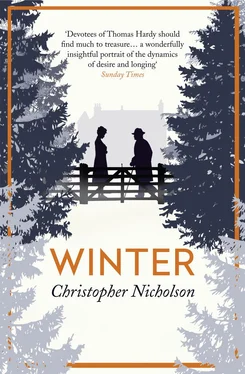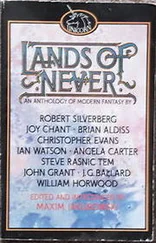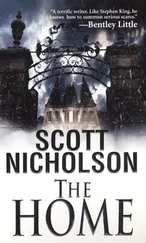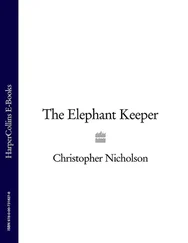Of course I do nothing of the sort – just think of my reception! Instead, as his dutiful secretary, I pull up my typewriter, and answer each letter in turn, taking a carbon copy which I put in a file. Already I feel exhausted. Even as I sit here, my entire body seems to be aching and my nerves are strung to snapping point. I cannot breathe!
How ridiculous this is. All round the country there are women whose situations are incomparably worse than mine, women living in the slums, women too poor to eat properly, women married to ne’er-do-wells and drunkards who beat and abuse them. What do I have to complain of, of what do I have to complain? I live a more than comfortable life here, I am lucky to be alive, I have books and clothes and food and a husband who loves me even if it is not in his nature to show it; count your blessings, Florence. You are alive! Think of the hens, pecking and strutting; unconscious creatures, they live for each moment, they do not fret themselves with questions. Think of little Wessie as he scampers hither and thither, his black nose twitching as he investigates some new scent on a blade of grass. These are good thoughts, and yet how hard I find it to hold on to them, how easy to revert to the old way of thinking: the weight of the trees, the length of the silences, the passage of the years, the sense of my inner self slowly darkening and drying, the sense of myself dry as an old gourd, dark as a shadow, the sense of something having gone wrong without being able precisely to say what it is, the sense of not being as completely alive as I ought to be, the sense of not being alive at all. Perhaps that is it, the sense that life is passing me by, or has already passed me by without my noticing; or perhaps it is the sense that this house is hostile to me because I am not his first wife. Sometimes I convince myself that she lies at the heart of the problem, and that she still lives here, in the air, in the trees, in the empty rooms; she is the true mistress of the house, and this is why I have such difficulties with the servants. No doubt she ordered the servants about without the slightest qualm. Do this! Do that!
I am determined not to mention her name, I am determined not even to think her name, although one of the things I have learnt is that often in trying not to think about a particular individual one ends up thinking of nothing but that individual, and in exactly the same way the more I try not to think about my neck the more vividly it returns and with it the possibility that Mr. Sherren for all his skill failed to remove every last particle of the infected tissue which is consequently growing back at this very moment. My mind is not my own, that is the truth, I cannot control my thoughts.
But, the truth is, the house is like a shrine to her. The calendar on the desk in his study is permanently set to the date upon which they first met, the shawl he insists upon wearing around his shoulders as he writes, and without which, he claims (a ludicrous claim), it is impossible for him to write well, was made by her; and on her death day we have to stand in po-faced solemn ceremony over the grave at Stinsford in which she is buried and in which he himself eventually plans to be buried (an honour from which I am presumably excluded). Let me add that the shrubbery in the drive is in the shape of a heart to signify his love for her, a love which, if it ever existed, did not exist in the last years of their marriage, when they lived in a state of mutual hostility. He has forgotten all that. (Have I forgotten? I have not forgotten.)
He sits there in the gloom and writes I know not what: another melancholy poem, in all probability. If the trees were cut back, is it not possible that he would begin to write poems that were not so very dark and melancholy, but full of light and hope? This is what I often think, that things might be different, be better.
Lying on my bed after lunch I watch the light moving in the sky and the flicker of the pale green veiny undersides of the ivy leaves on the other side of the window. The house is as quiet and peaceful as it should be, and if I did not know the trees were there I might even be able to imagine that they were not. I drift into a lovely sleep and wake unexpectedly full of energy. Downstairs I catch Wessie lolling on the sofa, his eyes half closed. ‘Come on, Wessie,’ I say, ‘you lazy-bones, what are you dreaming about? Walkies! Walkies! Upsticks!’ He gives a shiver of anticipation, as if to say: ‘Yes, mistress!’ and out we go.
Since my operation I have walked very little, I have not felt well enough, but I am determined to force myself out for the sake of my health. There are several short walks from the house. We might walk down to the railway line, we might walk along the cinder path by the railway and come back through the sheep fields, which would make a nice triangular walk; or we might cross the railway line and walk in the meadows by the river. We take the easiest course, the path down the stubble field and up the rise to the new plantation. Rabbits (their scrapes are everywhere) start at our approach, listen with their pink ears and scurry to their burrows in the roots of the hedgerow. We also see a small fox, a very alarming sight to anyone like me who keeps hens. There are not that many foxes round here but they are so ruthless when it comes to hens, yet even foxes have to live, one cannot blame them. It trots along the edge of the field, its brush streaming. ‘Look, Wessie,’ I say, ‘a fox!’ but he is too preoccupied with smells to hear me. At the top of the rise he finds some clods of fresh horse-dung. ‘No!’ I shout at him, ‘Wessie, no, no!’ He lifts his head – ‘O but, mistress, it smells so delicious!’ and takes a quick bite. – ‘No!’ I shout. ‘No! No! You naughty dog!’ He bolts a second mouthful, I haul him away. ‘You naughty dog! Bad! Bad boy! I am very cross with you, do you hear? You must not eat horse-dung! You should be ashamed of yourself!’ In my heart I am not really cross, I could never be really cross with him. He puts back his ears and pretends to be very contrite but within a few seconds he has forgotten and is lifting his leg on a withered thistle.
Evening. He listens in silence, or does not listen, hands laced in his lap, dressing gown tied tight. Half of his face, on the far side of the oil lamp, is in shadow, but I can see enough; his eyes are closed, his breathing steady. He is asleep. At each inbreath the wings of his nose part slightly and at each outbreath his lips purse and open. I pause, and wait to see what happens. Nothing happens.
‘Thomas?’
His eyes jerk open.
‘You were asleep.’
‘I was listening.’
‘I promise you, you were asleep. Shall I go on?’ Since the operation I have been very conscious of the strain on my throat and I should be glad to stop.
‘If you would; thank you. I was awake, I was listening to every word.’
I permit myself a small, knowing smile (taking good care that he sees it), and continue to read Jane Austen’s elegant sentences. His eyelids soon droop, his eyes close again, his breathing resumes its regularity. No doubt someone watching this scene would find it comic, yet my life is not a comedy as I am well aware. To what or whom am I reading? To the empty air? To the silent furniture?
At the end of the chapter I wake him up. We wish each other good night and climb into our separate beds, in our separate rooms.
This is where nothing happens again, although what often used to happen, a long time ago, so long that I almost wonder if it ever happened at all, is that he would leave his bed and arrive by mine, breathing heavily in the darkness. I would lift the corner of the sheets and in he would climb, dragging at my night-dress, wrenching it upward, hauling it above my shoulders. To avoid being suffocated I would pull it off my face, at the same moment turning my body and steering my breast towards his mouth. His bristly moustache would scrape the skin. He would nuzzle and mumble while I stroked his head and caressed his ears, all the while asking myself whether I should do more, whether I should stroke his back or spread my legs or take one of his hands and guide it towards my sex, or reach under his night-shirt, or even utter sounds of pleasure in the hope that they would encourage him to push into me, but there I was far too shy. For (I would think to myself), is it not just as likely that sounds of pleasure will put him off? Is it not safer to stay quiet? What do women generally do? What are women supposed to touch? Are there certain acts that are appropriate for a wife to perform as opposed to certain other acts that are not appropriate for a wife to perform? Where do the boundaries lie? How does one find out? But then I would say to myself, what does it matter that he so rarely pushes into me, surely all that matters is that it makes him happy, although would it not make him even happier if he did push into me? As a wife it is one’s duty to make one’s husband happy. I firmly believe that.
Читать дальше












